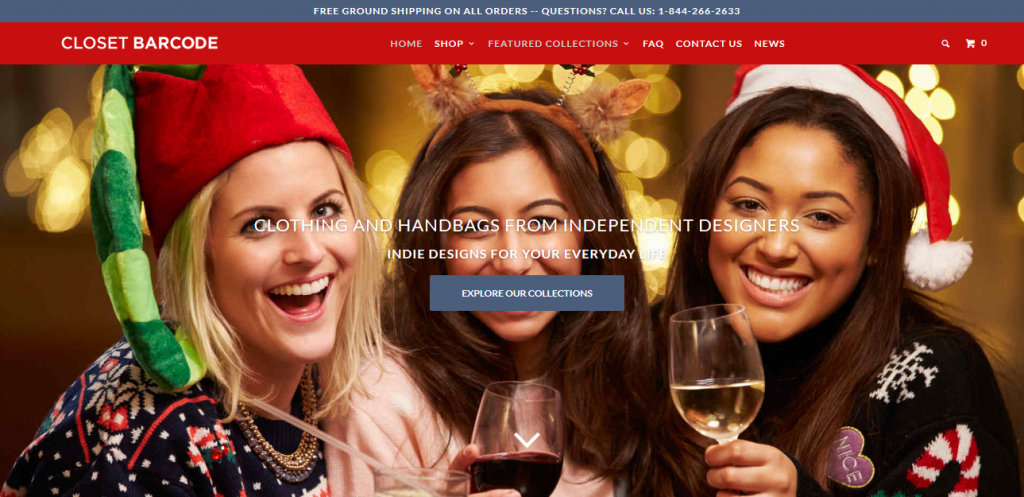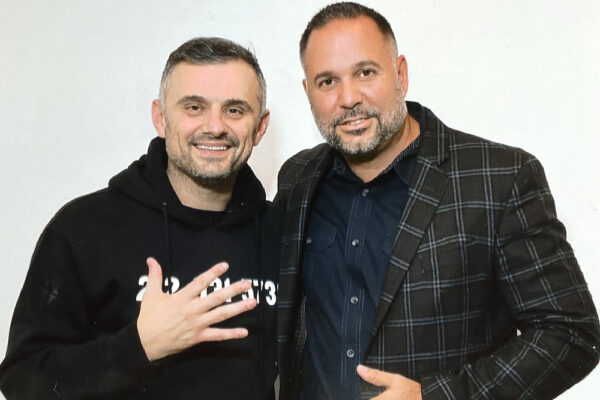
Hi Todd. Welcome to www.entrepreneurship-interviews.com. We are going to talk today about entrepreneurship and what does it take to start a business. But first, tell us a bit about Closet Barcode.
Todd: Closet Barcode is an online store that sells clothing and handbags for Misses. We offer products that are created and designed by independent designers. This means that our selections are unique and from small labels that are not found at large department stores or mall stores. Our selections are also different because we look for pieces that have unique details.
How did it all start?
Todd: I wanted to start an eCommerce business for a while. The challenge was finding a product or service that I could be excited about, enjoyed dealing with, and something that could be marketed easily. I’ve always enjoyed fashion and shopping and decided that I would start a small eCommerce boutique that sold Misses’ clothing and handbags. The reason I choose women’s over men’s is that women’s clothing is much more interesting. Plus, there are many more articles of clothing that women combine to make complete looks.
Most people never start a business because they are afraid. Afraid that is not going to work. Afraid that they are going to fail. So what is your advice on people being afraid to start?
Todd: That is something that is really hard to overcome. What helped me to start is realizing that it doesn’t have to be all or nothing. If you want to start a business, you don’t have to quit your full-time job on the first day and risk it all. Just work on baby steps and when you are willing to take the next step, then take that step. For example, if selling a product online interests, you then experiment first by selling on established sites first like eBay, Amazon, or even Craigslist. You don’t necessarily have to start by creating your own website and heavy marketing.
What if they fail?
Todd: Failing is always something that can happen. I think the important thing is focusing on the small victories that happen over time. You can have a bad week, month, or even quarter when first starting. If you are only focused on the negative things, you are probably going to sabotage your own success. I think it helps to create some type of timeline or plan to help your progress. You also need to have realistic goals and expectations. You can’t expect miracles to happen during the first month.
Is there such thing as a recipe for success when starting a business?
Todd: I don’t believe that there is. There are just so many variables at play that it is impossible to create a winning formula right out of the gate. There are definite things that you need to do: you need to know your product, good sourcing of the product, how you want to sell your product, marketing ideas, etc. But it is really up to you on what you feel are the best ways to approach those. You also need to listen to feedback and be open to changes.
They say follow your passion, and the business will be great. From my own experience, there are at least 2 things that could go wrong with this approach: you soon discover that your passion is not in a profitable field that could put food on the table, or even worse, you discover that when “you have to do your passion because it’s your job” it becomes a chore and you both fail and lose your passion.
Todd: I think proper planning and market research can help with the first problem. When you decide what you want to create or sell and then do some market research on what the demand is for that product. There are a lot of free resources and even affordable publications or databases available to help with that. I think the issue for problem two is identifying when you start to feel that it is a chore and when you begin to lose your passion. Perhaps you need to delegate more tasks to people on your staff if you have one. If this is a solo operation, then perhaps you need to outsource some things to different companies.
What is more important for an entrepreneur knowing sales or knowing the actual job?
Todd: I believe knowing the actual job is more important. There are a lot of moving parts when venturing out on your own: generating customers, customer satisfaction, social media, marketing, etc. I think having some base knowledge on best practices in all of these is crucial to running your business on a day-to-day operation.
Coming back to Closet Barcode, what makes it special? Why is it different?
Todd: Closet Barcode is special for multiple reasons. First, we deal with carrying products from small independent designers. These are pieces that are not manufactured on a large scale. This also helps us in carrying a product that is different from mainstream stores and other online sites. Second is our policies; we always have free shipping with no minimum spend. We have a very easy no-questions-asked return policy. We also offer returns on sale items. A lot of people don’t realize how unique that is but take a look at major retailers, and you’ll find that when buying online, you are not allowed to return the product if purchased on a sale. Example retailers for this are Forever 21 and Brandy Melville. Third, we also are not simply “warehousing” our products. Each product is thoroughly inspected before it goes live on our site to make sure the quality is there. We test buttons, zippers, look for defects, etc.
Can you become a strong entrepreneur if you don’t have people skills? Or lack leadership?
Todd: I believe that you can become a strong entrepreneur without those two skills. What it takes to become an entrepreneur is having a solid idea, determination, and the ability to solve problems. There are so many resources available online that what you lack intuitively you can make up for by researching.
Are entrepreneurs born or made?
Todd: I don’t think it is either or; I think these are two different types of entrepreneurs. Some people are instinctively great at identifying a way to make extra money quickly and with minimal effort. Examples of this are those that buy up a limited edition release, whether it is clothing (Target exclusives), a hot new toy that will be popular at Christmas time, and then resell them at a large markup on Craigslist or eBay. Entrepreneurs that are made are unhappy with their daily grind and actively look for something they can provide to the public as a way to create a living where they are more in control. Either they create a new product or market their skills on their own.
And one question related to online businesses. I had a lot of talks with entrepreneurs that sell online, and they always complained that it is easy to compare prices, and if you don’t have the best prices, you’re not going to be able to sell. True or false?
Todd: Some aspects of that are true. Amazon and Wal-Mart definitely are two giants that people flock to when purchasing general commodities. It would be hard to compete on price alone. For example, this Christmas season, there are two popular items: hoverboards and drones. In many cases, the new sites that have popped up selling these items are probably using the same supplier unless they are creating their own version. With multiple competing sites and the use of the same supplier, competing on price is definitely a concern. This is when the concept of the augmented product can help set yourself apart. When people make a purchase, they are not only buying the physical good. They are also buying into the warranty policy, customer support, knowledge base, etc. If you can provide great content on your site that demonstrates all the things you can do with your new hoverboard or drone, that is something that you probably are not going to see on Amazon or Walmart – they mainly stick to just the product. The other thing is support. What does the customer do when they arrive at a problem and are not able to solve it? Are they able to call and talk to you? Do you have tutorial videos on how to troubleshoot the most common problems people? Do you offer an extra warranty besides what the manufacturer has? As you can see, there are many options on how to compete besides just price.
How does this go for Closet Barcode?
Todd: Clothing and handbags fall into the commodity category, so we definitely focus on ways we can separate ourselves from other players. Part of that is by communicating the message that we carry goods from small designers. Product selection is key. We look for clothing and handbags that have unique details. For example, our Arctic Ice tank top has such a distinct design in the front and back, along with our Rippled Water long-sleeve top. While not everything may be distinct, we can’t just carry basic shirts and sweaters – there has to be an added detail to separate it from the pack. Our policies are also very friendly. We have free shipping on anything, easy returns including sale items, and our quality control measures are different – this goes back to the augmented product.
Any thoughts about the future of Closet Barcode?
Todd: I still view us in the beginning phase. We’re focused on building brand awareness through social media and through blogger outreach. For now, we want to continue to only carry tops and handbags and do those well before we move on to other categories. But as we grow, we will expand the selections.




